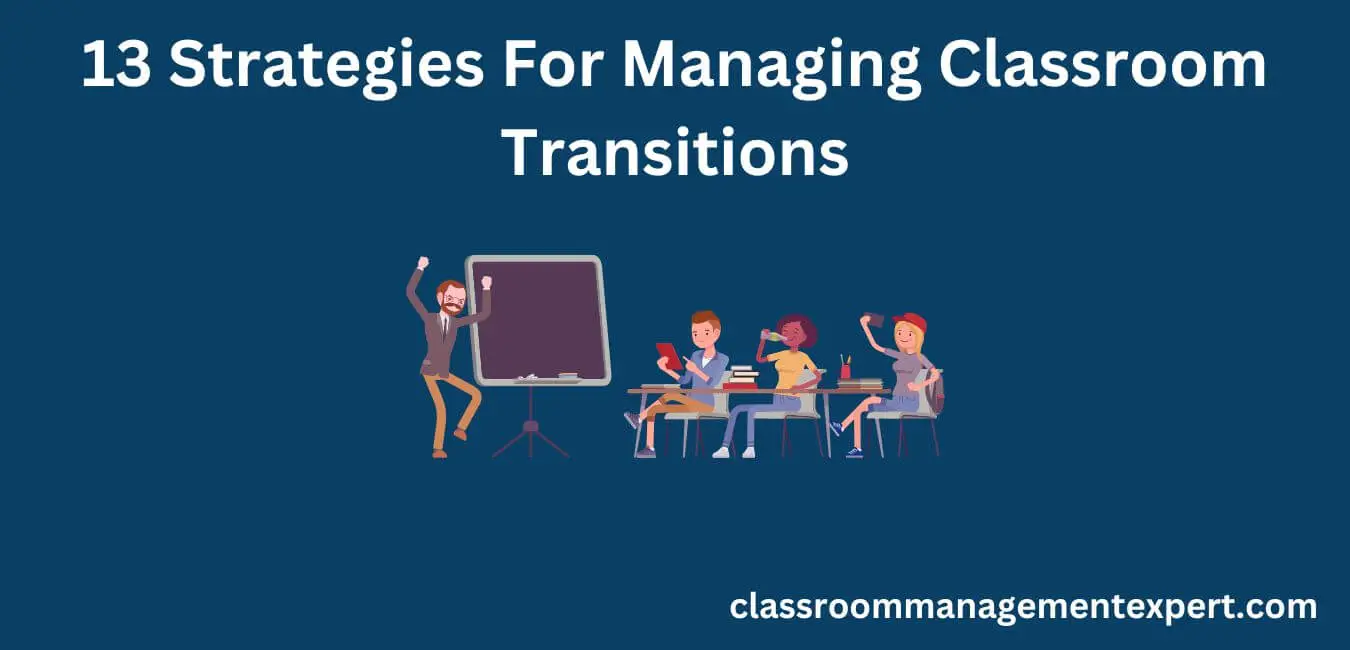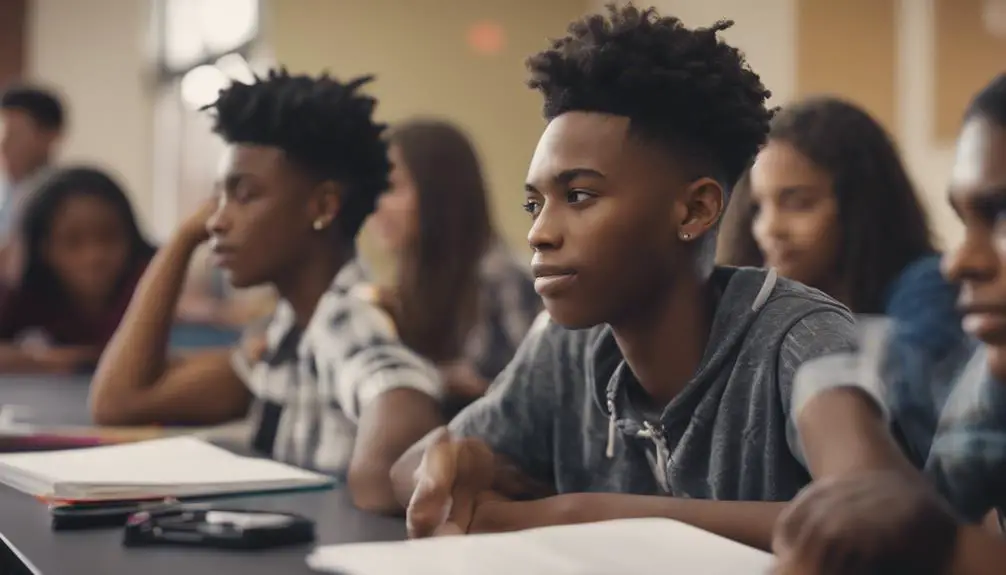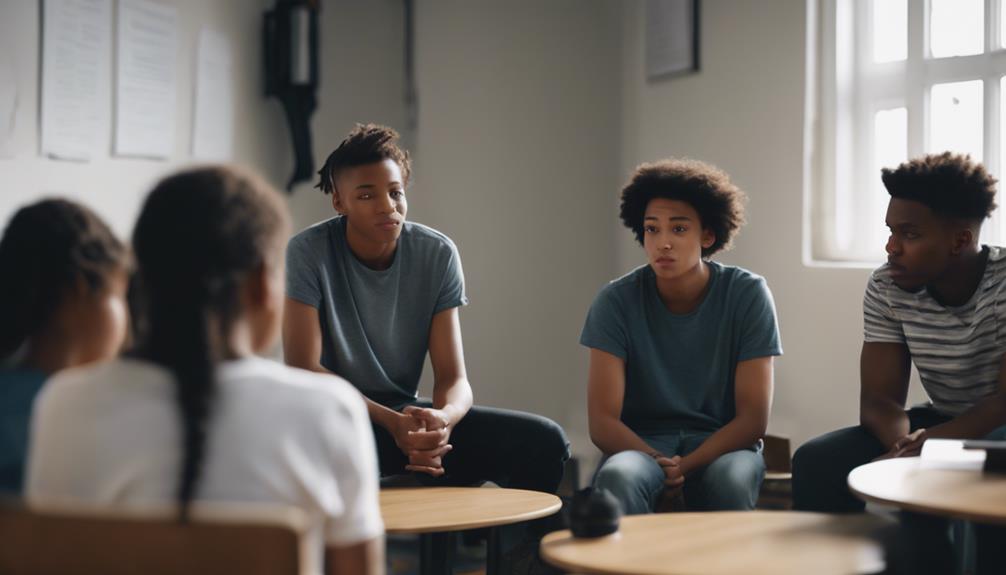I’m sure that you’ve had your fair share of episodes with students acting out in class. It’s never an easy situation to be in, but it can happen to anyone. If you’re unsure how to handle these situations, read on for some tips and tricks to help the next time a student is acting out during your lesson.
It is important not only for teachers but also for kids who are struggling with mental health issues or other challenges outside the classroom to understand how they act when they are upset. Kids often act up because they feel like there’s no one listening or understanding them which leads them to feel powerless and frustrated. The first step then is all about helping the child regain control over themselves by giving them space and attention so that they can explain what is happening to them.
How Do Students Act Out?
Students act out in many different ways, but it’s important to remember that there is a reason behind every action.
1. Students might be unable to sit still in their seats. It could be because they are all riled up from recess or the break before lunch!
2. There may be a student who keeps talking after the teacher has asked them to stop.
3. A student might suddenly yell out in class.
4. A student may seem distracted and spacey for no apparent reason. They could be daydreaming about their weekend plans!
5. There might be a student who interrupts when another student is talking.
6. There could be a student who is always off task, wandering around, or whispering with their friends instead of working on the assignment at hand.
7. A student may not respond when they are spoken to, even if it’s multiple times.
8. There might be a student who never follows the classroom rules and constantly gets out of their seat when they’re supposed to be sitting down.
9. A student might interrupt while the teacher is speaking to another student.
10. A student may stare out the window, daydreaming or looking like they are lost in thought instead of paying attention to the lesson.
The best way to handle students acting out is to find out why they are doing it. Maybe they didn’t get enough sleep last night, or maybe their dog was run over by a car! Being able to relate with your students will make them open up and feel like you understand what they are going through; this could make them more open to your teaching methods.
However, if the student is disrupting other students in the class it may be necessary to send them out of the room for a while or see what’s going on with the student in private. If there isn’t a good reason for their behavior then they need to learn that certain actions are not okay in the classroom.
Why Do Students Act Out?
Kids act out for many reasons, some obvious and others less so. The more you understand why they act out the more effective your response will be. Students act out when they are bored, tired, lack self-control, don’t know how to act in a social situation or what’s expected of them. Some act out to get attention, for revenge, or just because they can. Here are ten ways students act out in the classroom:
1) Students will act out when they don’t understand what is going on, and it’s not their fault. If you teach with a social studies book read aloud and expect every student to keep up, you are asking for trouble. If you lecture monotonously with no visuals, students will tune out and act out to bring attention back to themselves.
2) Students will act out when they are tired or not feeling well. You can have the best lessons in the world, but if your students are exhausted, it won’t matter. Also, they will be less able to focus if they are coming down with a cold or flu.
3) Students may also act out because of peer pressure, trying to fit in or gain the approval of their peers. It’s not rare for students to join in on activities they don’t understand just so they can feel included. They may also do something they normally wouldn’t do because of peer pressure. You may have a student who never talks or participates in class, but if the other kids are doing it, he will too.
4) Students often act out when they’ve had a bad day and don’t know how to deal with their emotions. A student can have a bad morning and by the time they get to school, they are already upset. Once they’re at school, things can snowball, and before you know it, students are lashing out. They may also act up if something happens outside of school that has nothing to do with their education, like a fight with their parents or breaking up with their boyfriend/girlfriend.
5) Some students will also act out because they want revenge and don’t know any other way to get it. If a student has been treated badly by their peers or an adult at school, you will see them misbehave more often than other students.
6) Students may have trouble controlling their emotions. This is different from being upset after having a bad day; this is more like not knowing how to control their feelings. One minute they may be fine and the next they are extremely agitated. Teachers see these students act out because of anger or frustration at themselves for not being able to control their emotions.
7) The student simply doesn’t know how to behave in a social situation. They may have trouble interacting with other people or being patient. They are not aware of proper classroom decorum when it’s appropriate to be loud, when to speak and when to keep quiet. Usually, these students have learned bad behavior from their peers in the past or have simply never been taught how to behave in a social setting.
8) Some students will act out just because they can. They do it for fun and don’t care about the feelings of their peers, the teacher, or themselves. These students will talk back to you and disrupt class regularly regardless of what is going on in the room.
9) Finally, some students behave badly because they want to be able to leave school early. It’s not uncommon for students to act out so they can go home early at the end of the day. If you see your students acting up more often during certain units, talk to them about their behavior. You’ll be surprised how many of them are trying to get out early.
Read here for more of the reasons why students misbehave in the classroom.
What To Do When Students Act Out?
Behavior management is a key element of teaching, and good conduct in the classroom involves treating every student fairly. Though we may expect our students to adhere to certain rules, it’s important to remember that most children will make mistakes from time to time, and instead of reacting with anger or frustration, stay calm and be understanding. There are several ways to help manage bad behavior and keep your students under control:
1. Take Time Out
Have a specific ‘time-out’ area where students who misbehave can go and calm down. This is particularly helpful if they’ve hurt someone or damaged something – they can stay here for a few minutes and compose themselves before rejoining the class.
2. Use a Timer
Use a visual timer to show students exactly how long their time-out will last – this makes it easier for them to understand and you won’t have to keep repeating yourself. For younger children, use an egg-timer so they can watch the sand falling and know when their time is up!
3. Make It Clear
If you want students to do something, clearly explain why this is beneficial and make sure they know what will happen if they don’t comply. One way of doing this is by telling them exactly how long their time-out will last – if they’re not behaving when the timer runs out then that’s that!
4. Make Sure They Know the Rules
Just as you have to explain why your requests are important, so should you explain what happens if they don’t follow your directions. For example, let’s say a student keeps interrupting when you’re talking: make it clear that if they do it again they’ll need to stay in time-out for a while.
5. Reconsider Your Consequences
When giving consequences, you should always consider whether or not they’re realistic. For example, if the student only has five minutes left of their time-out, sending them to another teacher might not be worth it! If your consequence doesn’t seem fair then reconsider what you’re going to do next.
6. Remember That Life Isn’t Fair, Neither is Teaching Life
It isn’t always fair and we mustn’t expect things to run like clockwork. There may be days when you’ll have a class of angels and others where they’re out of control – no matter how hard you try! It’s important to remember that if you’re feeling stressed, your behavior will rub off on the students so try to calm down and take deep breaths.
7. You Can’t Please Everyone Inevitably
There will be some children who don’t want to follow your rules – no matter how many times you ask them to do something. It can be tough being a teacher, but you have to remember that everyone’s behavior is different and every student has the right to learn in a safe environment.
Check out more of our articles here.
Final Thoughts
If you’re a teacher and your students are misbehaving in the classroom, it’s important to remember that they may be acting out for any number of reasons. While we might expect them to follow our instructions, children will sometimes need some time-out when they’re upset or angry about something else happening at home. It can also be difficult if there aren’t clear consequences set beforehand – so make sure you give them enough warning before punishing their behavior! With these seven tips on hand, hopefully, teachers will feel more prepared to manage bad behaviors in the classroom.

















